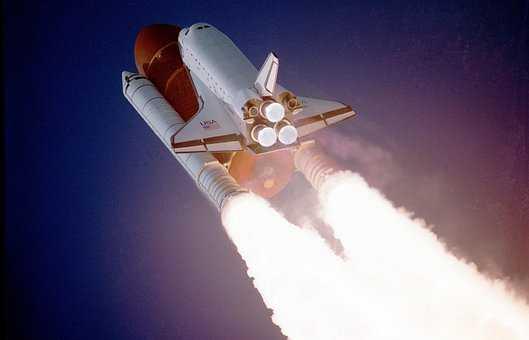What is rocket science?
Curated from: sciencefocus.com
Ideas, facts & insights covering these topics:
5 ideas
·3.27K reads
54
1
Explore the World's Best Ideas
Join today and uncover 100+ curated journeys from 50+ topics. Unlock access to our mobile app with extensive features.
The Science Of Rocket Science
Newton’s Third Law Of Motion, which states that every action has an equal and opposite reaction is the heart of rocket science.
The basics of rocket science are not that complicated, only involving getting the moving force that overcomes the pull of gravity, in a calculated and controlled manner.
102
1.59K reads
Rockets: Escape Velocity
The thrust required for an object to overcome Earth’s gravity and atmospheric resistance and move towards space is called escape velocity. Besides Earth, the gravitational forces that can affect the object are those coming from the sun, moon and even other planets.
Apart from space vehicles and the military, rockets are used in life-saving rescue flares and fireworks, and even the ejector seats in military planes.
69
531 reads
History Of Rockets
- One of the earliest devices that used rocket propulsion was called the aeolipile, designed in the 1st century AD by Heron of Alexandria, and used steam to spin a metal ball.
- Early prototypes of rockets were produced for firework displays in China in the 13th century, with the real, metal versions coming in the 19th century, used in Navy ships as an upgraded version of cannon.
- Early rockets use flammable substances like gunpowder that propel it using the thrust of exhaust gases.
68
449 reads
War Games With Rocket Tech
- Inspired by the German V-2 rocket weapon in World War II, many new rocket models were made by Russia and the U.S., as military technology was sought after in the arms race that followed.
- Many American rockets were initially intercontinental ballistic missiles.
- Liquified hydrogen is the preferred substance in modern rockets and those which have to work without air use oxidizers to help with the required oxygen in the system.
- Some newer rockets are electric and use charged ions as thrusters by creating an electric field.
62
346 reads
Arrival And Departure For Rockets
Many rockets have multiple ‘shell’s that fall off during escape velocity and is due to the empty fuel containers that are discarded to save on mass, after their fuel has been utilized.
Landing back on earth is trickier than landing on surfaces with no atmosphere or less gravity, and rockets use air resistance, wings and parachutes to slow down the reentry fall.
63
356 reads
IDEAS CURATED BY
Ishank R's ideas are part of this journey:
Learn more about technologyandthefuture with this collection
Strategies for building self-confidence
Techniques for embracing your strengths and accomplishments
Tips for seeking support and feedback
Related collections
Similar ideas
11 ideas
2 ideas
Lunacy: how science fiction is powering the new moon rush
theguardian.com
4 ideas
What is BioSentinel?
nasa.gov
Read & Learn
20x Faster
without
deepstash
with
deepstash
with
deepstash
Personalized microlearning
—
100+ Learning Journeys
—
Access to 200,000+ ideas
—
Access to the mobile app
—
Unlimited idea saving
—
—
Unlimited history
—
—
Unlimited listening to ideas
—
—
Downloading & offline access
—
—
Supercharge your mind with one idea per day
Enter your email and spend 1 minute every day to learn something new.
I agree to receive email updates

